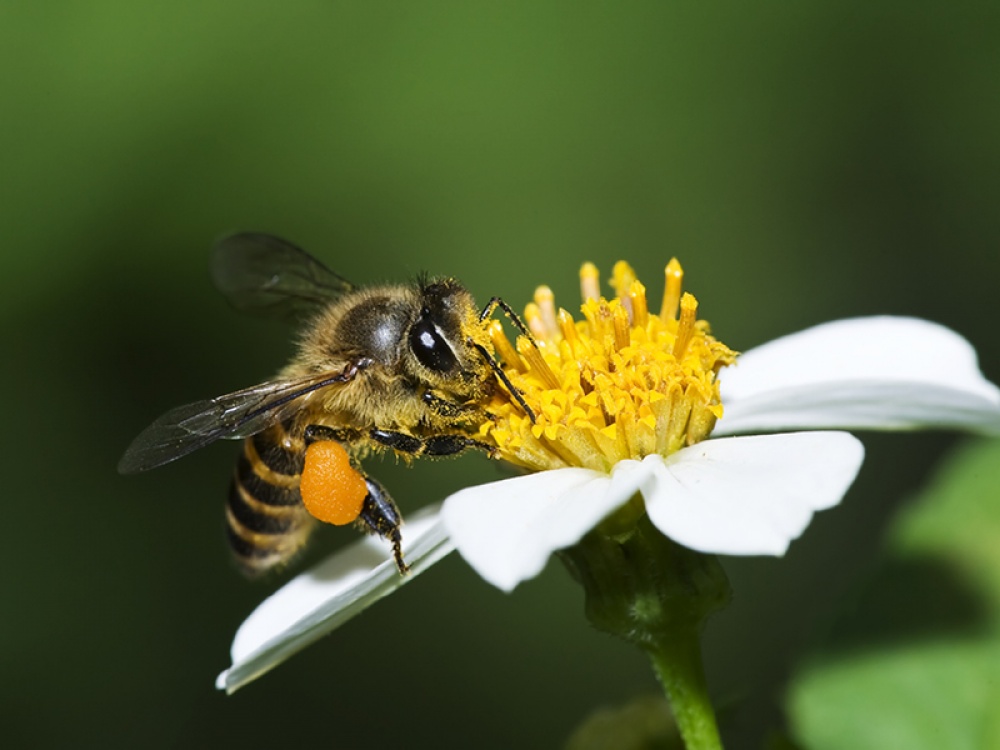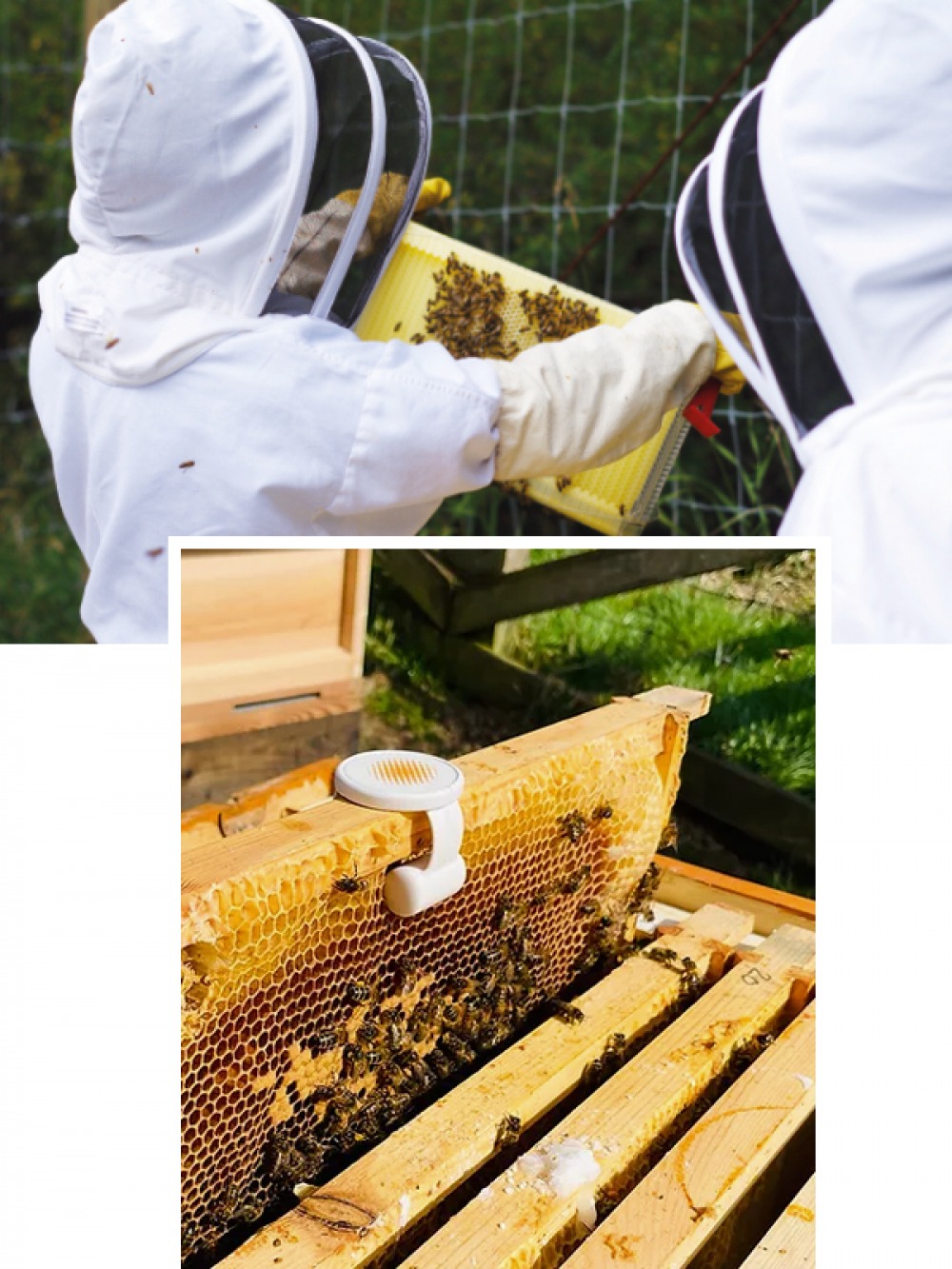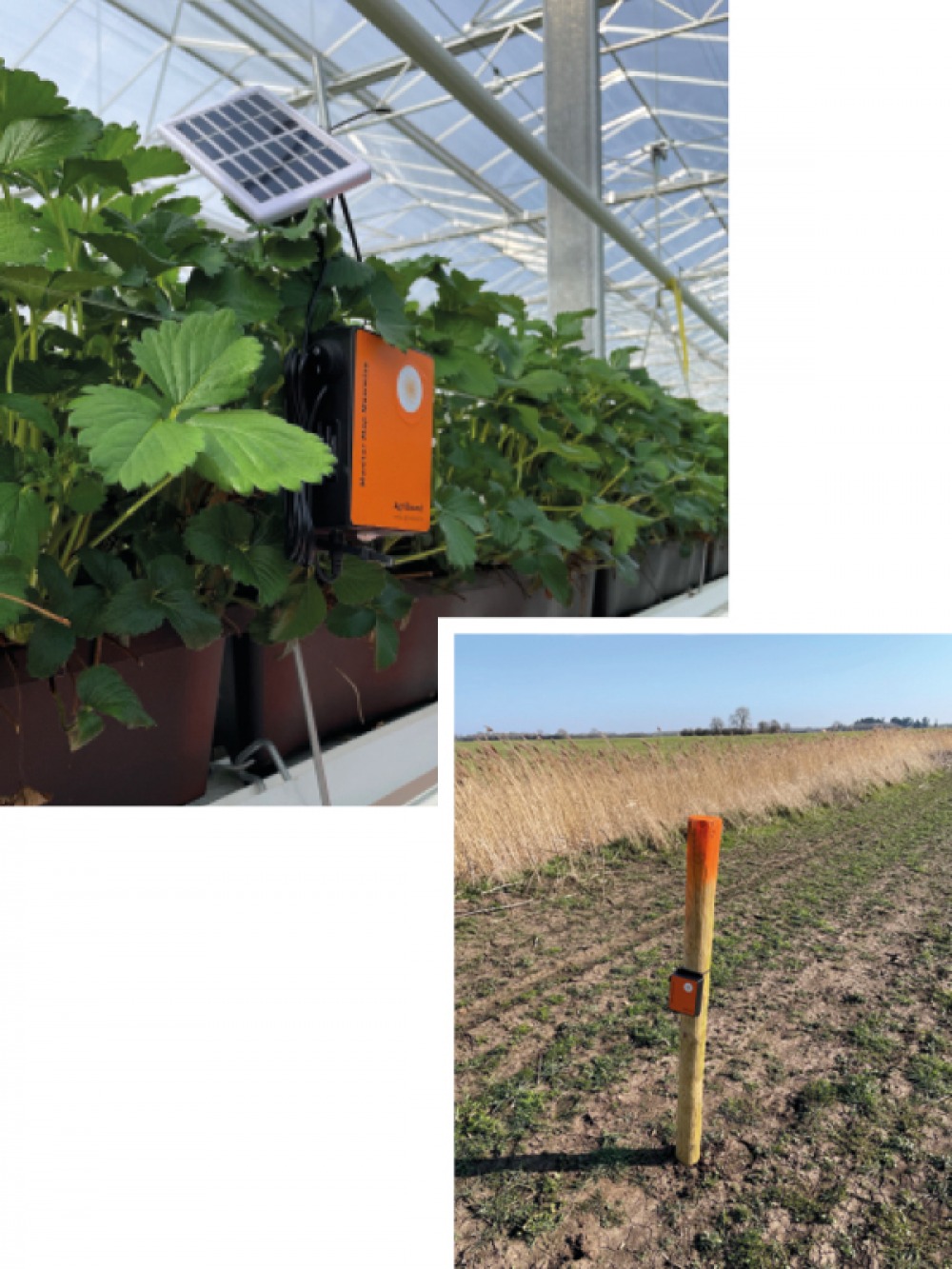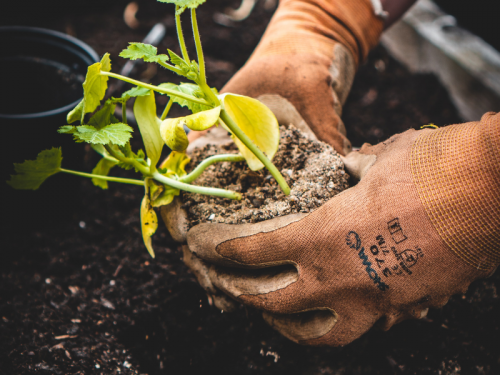How AgriSound Are Helping to Save our Bees and Restore the UK's Biodiversity

Bees are under threat and no one has had the means to fully understand the extent of the problem – until now

The truth is stark. Our future hangs in the balance of having a properly biodiverse environment, with pollinators having a huge effect on everything from food production to the cleanliness of the air we breathe. Worrying, when you consider the increasing rates at which many of our pollinators are dying out, especially our bees.
Even though we are becoming more aware of this issue, most of us have no idea what life for bees looks like in our gardens – when they’re coming and going, what they need, why they’re dying, and how to help.
Read More: Meet the Brothers Behind the Beeswax Candle Business Bottling Up North East Heritage
Casey Woodward founded AgriSound to answer these vital questions, designing sound-activated listening devices that monitor bee traffic, bee health, and allow us to understand bees’ most urgent needs.
‘I have a PHD in biology and I’ve spent most of my career in agriculture and the food sector, but AgriSound came about when I realised how low-cost listening technology could be used to increase animal welfare,’ explains Casey.
‘We decided to try and help bees living in beehives, listening for signs of them becoming ill. From there we thought bigger, and moved to listening out for bees in the environment, making sure we’ve got a healthier number of bees in the wild.’
The devices are simple in concept, backed by impressive software and an ingenious action plan to act on poor bee health in farms and in our pubic spaces.
‘They’re a bit like an Alexa for your house that’ll wake up if you give it an instruction. Our device is a simplified version of that. It wakes up when it hears the sound of a pollinator, registers the pollinator, tells you what it is, and then that data goes back to the app and maps out where you have high or low levels of pollinators in a garden or field,’ Casey explains.
‘We also have a separate range of products called the Beehive Monitoring System that are specifically designed to listen to the health of bees inside hives,’ he continues. ‘They help monitor honey bee welfare – we can hear the markers that indicate a bee hive might be stressed, or under attack from a predator. This helps to improve the yield of the hive’s honey crop too.
‘We know that high levels of pollinators are a sign that biodiversity levels are okay, they’re an indicator. When pollinators have a problem, so does everything else’
‘After talking to hundreds of gardeners, we’ve realised that people really want to do their bit to support the bee community. People want to plant the right type of plants in their gardens to help pollinators,’ says Casey.
‘By having our device in someone’s garden we can see that originally they may have had only 10 bees coming into it, then after planting all the correct flowers following our data-led advice, we might then measure 100 bees an hour passing through.’
If it’s good for bees, it’s good for us – that’s the approach AgriSound takes in convincing others of the importance of upping our levels of biodiversity. Bees support the environment, and therefore contribute to the economy.
Casey is eager to stress the importance of a biodiverse landscape to encourage many different pollinators to return to those spaces.
‘Economically, if you were to look at the effect of pollinators and biodiversity, we’re in the area of half a trillion dollars worth of economic value. From cleaning the air to the crop yields they help improve, we are all dependent on plants and biodiversity,’ he says.
‘We know that high levels of pollinators are a sign that biodiversity levels are okay, they’re an indicator. When pollinators have a problem, so does everything else.

‘However, we do need a mix of a different kinds of pollinators, not just honey bees. If you have a diverse landscape of different flowers, bee hotels, and spaces for insects to live, then you have lots of different insects which can and will help pollinate, and that protects us from a specific disease that might come in and wipe out a particular species,’ Casey goes on.
‘It’s important that we can weather as many different storms as possible, and sadly, thanks to climate change, we’re seeing disease spread faster than ever before and increased emissions are effecting how insects live in certain areas. If it’s good for the environment then it’s good for business.’
This makes farms a clear target for support, leading AgriSound to work directly with our brilliant agricultural sector to help pollinators increase the yield of crops.
‘We target fruit and vegetable farmers in the first instance, and then longer term we want to bring this technology to gardeners and land owners who want to help improve insect levels across their land,’ Casey continues. ‘If I was an apple farmer, suboptimal pollination would have a really big cost – £5,000 per hectare.
'This results from a loss of product quality or less yield than expected. What AgriSound can do is put our kit in the apple orchard that tells the apple farmer where the black spots in terms of pollinators are, then we can analyse that data and advise them where to put beehives in to boost pollinators,’ explains Casey.
‘In the longterm, we can work out how we can permanently boost pollinators by telling users where to plant wild flowers, bee habitats, or create other bee foods to bring wild bees into the environment.’
Read More: Sustainable Living This Summer
Since AgriSound was founded in 2019, Casey and his small team of eight have garnered incredible support across Yorkshire. They’ve hit the ground running since they started deploying their devices in January 2022, overwhelmed by the interest shown by Dyson Farms, Innocent Drinks and Marks & Spencer. Most recently, they've also won the innovation finance award from the World Wildlife Fund and Tesco.
Casey was even invited to speak at the British Society of Animal Science in April thanks to his enthusiasm for the environment. These successes remind Casey of the good that can come from looking after our environment, and he’s happy to see big businesses sharing this passion.
‘I thought the environment and diminishing bee levels were a big enough problem that someone should do something about it,’ he explains. ‘No one was looking at pollinators, and I saw that farmers were still having to rely on manual surveys to monitor their pollination. That’s not ideal because of weather and time, even if it’s windy it can skew the results.
'Our data helps farmers tell great stories about how they and their suppliers are doing their bit to help biodiversity. It has an amazingly positive impact on the environment, which I think is really important, and it’s amazing that big corporates want to work with us to make a difference and give something back.
Read More: Yorkshire's Pioneering Tree Planting Initiative, The Northern Forest
‘You can go to any garden centre and see little seed packs with slogans that say “protect the bees” which is great, but sadly, the issue is that there hasn’t been any data to show if those efforts are working.
One of our products can monitor 24/7 how positive an effect these actions are having in our communities,’ Casey continues. ‘Everyone knows the bees are dying out, they hear it from David Attenborough and on the BBC, but if we ask people “what is happening to the bees in your garden?” until now, no one would’ve had a good answer.’
If you’d like to see how AgriSound can help improve biodiversity on your land or in your community, contact them on LinkedIn or via email at hello@agrisound.io







